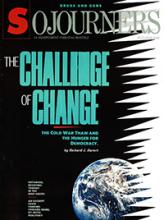The elections this spring in the Soviet Union dramatically demonstrated that while Mikhail Gorbachev has been the symbol and the spokesperson for the striking reforms in that country, the wellsprings of change came from deep within the Soviet people.
The election--the first free balloting since Lenin canceled the results of a 1917 plebiscite--was an unprecedented protest of the power and privilege of the Communist Party and the state apparatus, and a call for speedier and more substantial reform of the Soviet way of life.
But it was also more than that. The results of the voting showed that the remodeling of Soviet society initiated by Gorbachev has grown far beyond what even a visionary pragmatist like the Soviet president could have foreseen. In some ways, today's Soviet Union is as distinct from Brezhnev's as the early Bolshevik state was from czarist Russia--not because the political structures have been immutably altered, but because of changes in the Soviet people themselves. For the first time in Soviet history, the people are acting as if they are no longer afraid.
Gorbachev was able to claim the election results as a mandate for his policies of perestroika and glasnost, and thus emerged with a strengthened hand in his ongoing battle with the more conservative elements of the Communist Party. For one thing, the strong showing of the reform candidates allows Gorbachev to portray himself as a centrist, much as Jesse Jackson's candidacy helped Michael Dukakis position himself toward the political middle.
Read the Full Article

